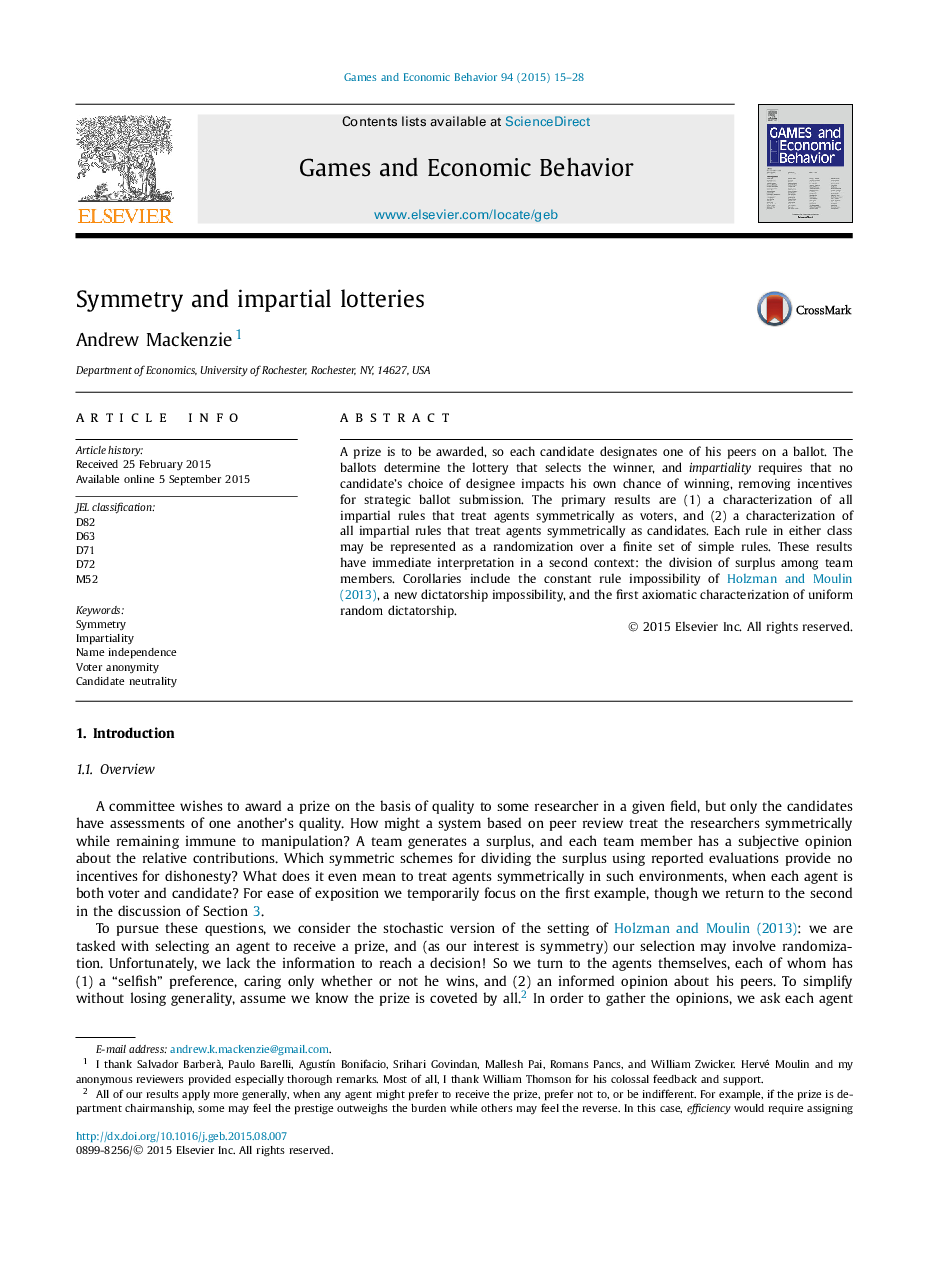| Article ID | Journal | Published Year | Pages | File Type |
|---|---|---|---|---|
| 5071549 | Games and Economic Behavior | 2015 | 14 Pages |
Abstract
A prize is to be awarded, so each candidate designates one of his peers on a ballot. The ballots determine the lottery that selects the winner, and impartiality requires that no candidate's choice of designee impacts his own chance of winning, removing incentives for strategic ballot submission. The primary results are (1) a characterization of all impartial rules that treat agents symmetrically as voters, and (2) a characterization of all impartial rules that treat agents symmetrically as candidates. Each rule in either class may be represented as a randomization over a finite set of simple rules. These results have immediate interpretation in a second context: the division of surplus among team members. Corollaries include the constant rule impossibility of Holzman and Moulin (2013), a new dictatorship impossibility, and the first axiomatic characterization of uniform random dictatorship.
Related Topics
Social Sciences and Humanities
Economics, Econometrics and Finance
Economics and Econometrics
Authors
Andrew Mackenzie,
